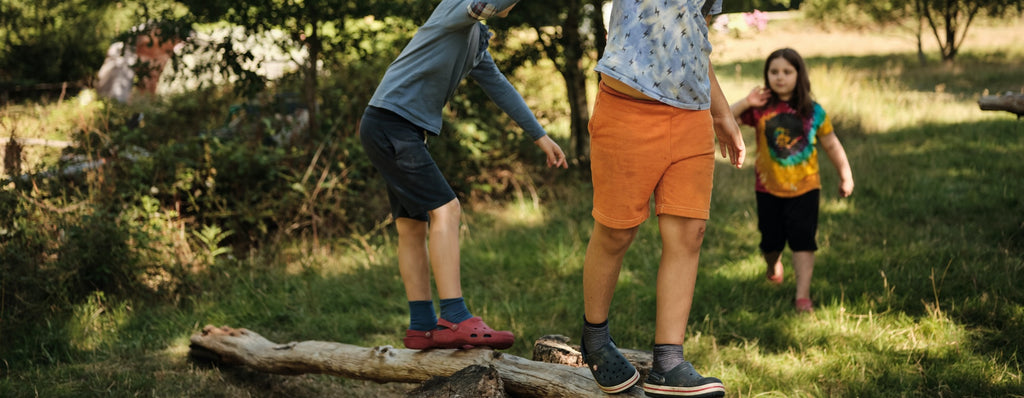If you stopped to think about the anatomy of your body as you balance on a beam, you’d be floored – the neural network that is firing and echoing back a million times a minute just to keep you from falling on your backside, a tsunami of information you have to process. You’re like a jellyfish in the water, expanding and extracting in a constant current of decisions, actions and reactions, doing everything, and almost nothing, just to stay on that beam.
Standing, sitting upright, holding a pencil: how many hours of work do you have to put in to master these everyday practices? Can you remember the first time you balanced on one foot? Unlikely. Can you remember learning to ride a bike? Perhaps.
Now consider the relationship between kinesthesia and an integrated sense of self. As you balance your body within space there is a constant coming back to the present – measuring it against ‘who am I now?’; ‘how do I feel now?’

Balancing risk and reward
Think about the development of proprioception and its inter-relation with risk – the first time you climbed over gate, or swung on the monkey bars – or the five-foot wall that everyone said was too high and too dangerous, even for a Balancing Big Paluka. Think about your friends giving you pelters – ‘you’re going to fall!’ – think about your own fears – ‘maybe they’re right, what if I fall?’ – think about your pulse racing, think about your heart in your mouth, think about what it felt in that moment.
Think about the feeling of getting it right, that precious moment, almost certainly not the first time, where your muscles responded to memory, your focus became acute, when you hit mute on the internal voice telling you ‘No!’. When you made it, you made it. Across the whole length! But nothing in life comes without risk, and how do you negotiate risk if you don’t know its first name? That’s what balance is about, it’s about taking on the adventure of being alive.
If you spend your life sitting behind a desk, you can forget this acute sense of balancing - being tired or stressed can literally unbalance you - you become less aware of the limits of your body, and consequently dyspraxic. Which is why, by the way, we campaign to get kids outside every day: climbing, running, jumping, looping the loop).


